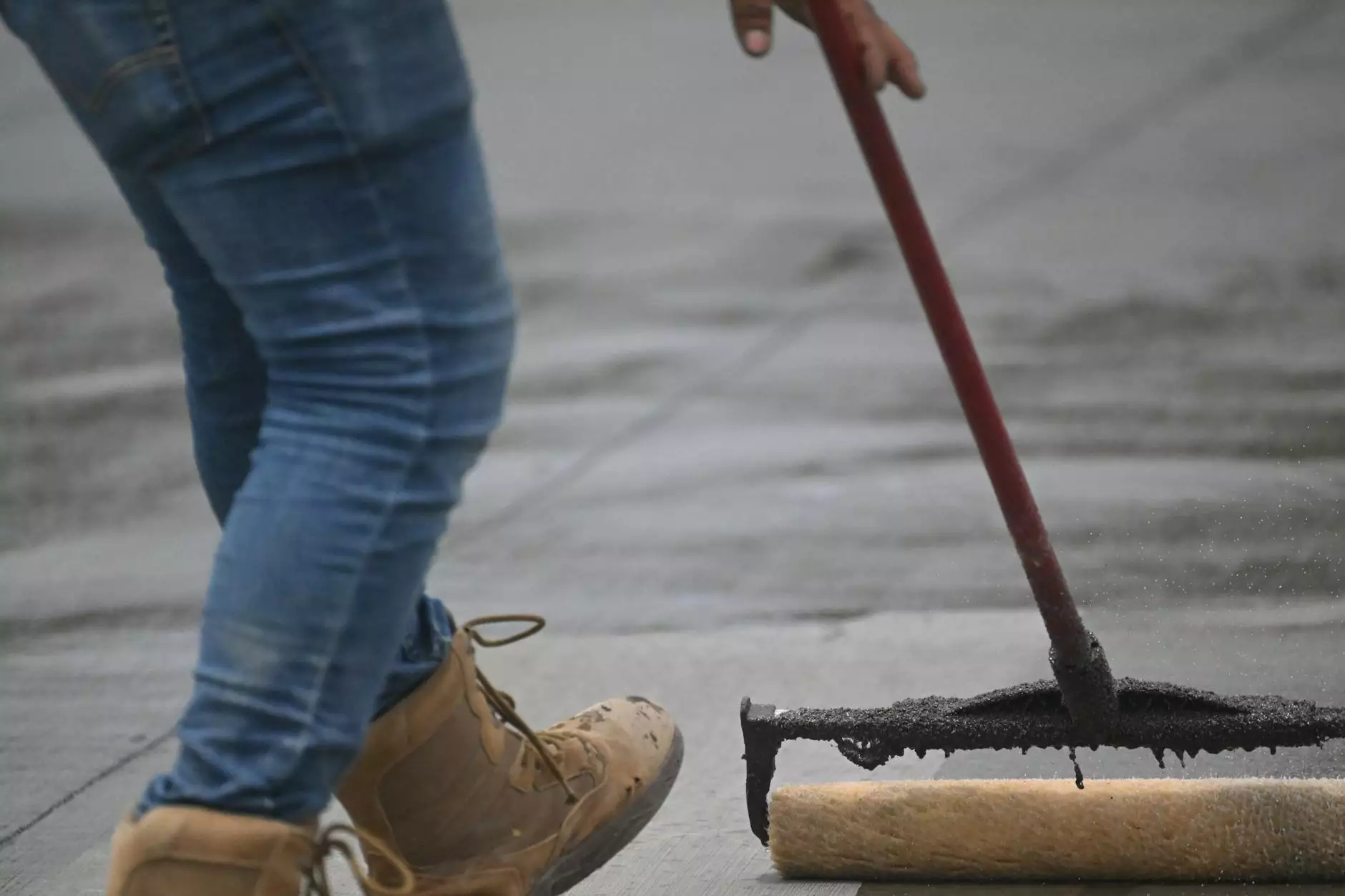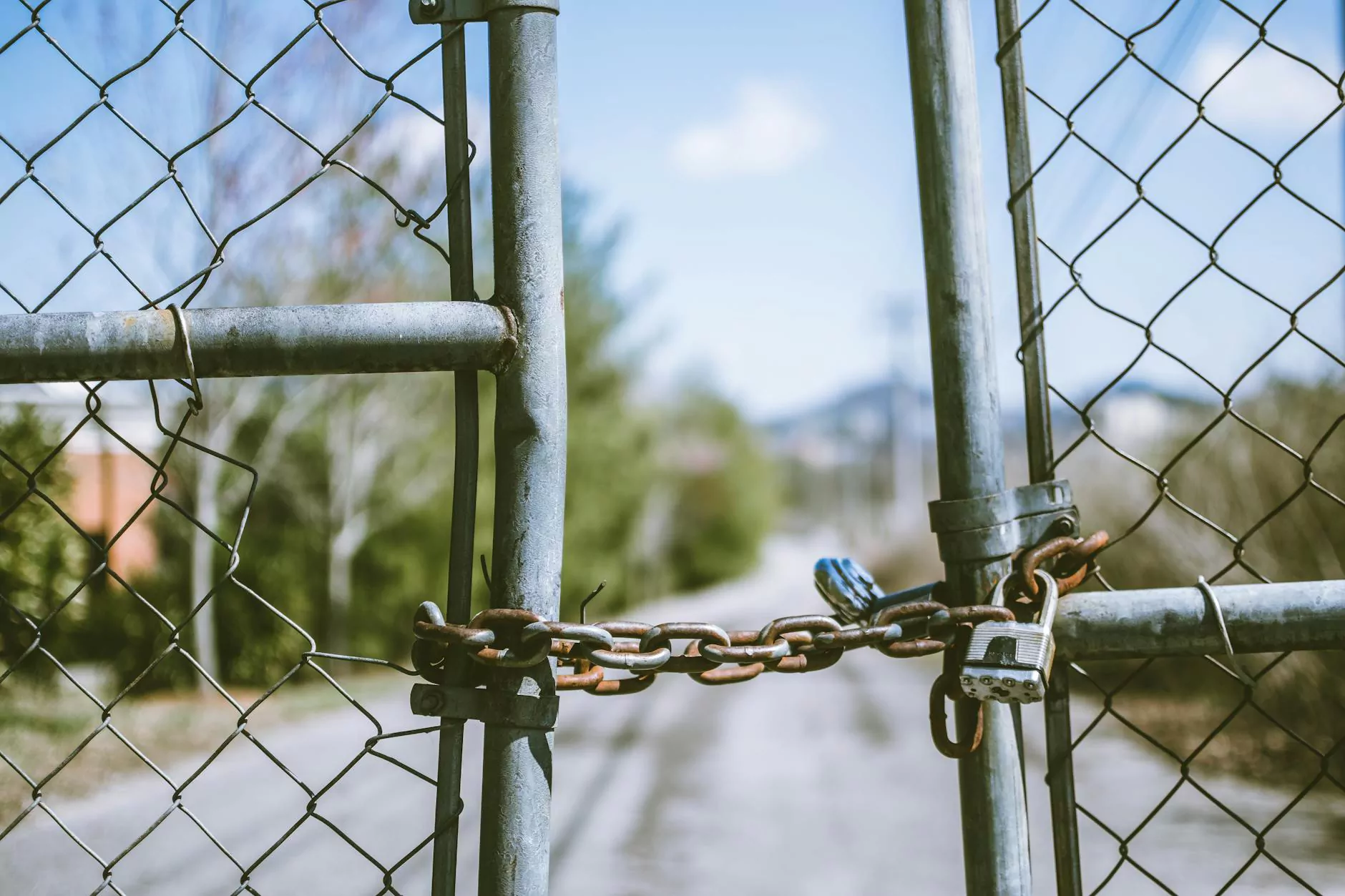Ultimate Guide to Slip Resistant Concrete Floor Sealer

When it comes to ensuring safety and enhancing the aesthetics of any space, slip resistant concrete floor sealers play a crucial role. With their remarkable ability to minimize the risk of slips and falls, these sealers are essential for both residential and commercial properties alike. This comprehensive guide will explore the significance of using slip resistant concrete floor sealers, their application methods, and tips to choose the right one for your needs.
Understanding Slip Resistant Concrete Floor Sealers
Before diving deep into the benefits and applications of slip resistant concrete floor sealers, it’s important to understand what they are. These sealers are specially formulated products designed to enhance the grip and skid resistance of concrete surfaces. Unlike regular sealers that provide a glossy finish but can become slippery, slip resistant sealers are engineered to add texture and traction to any concrete floor.
Why Choose Slip Resistant Sealers?
- Enhanced Safety: Floors treated with a slip resistant concrete floor sealer significantly reduce the likelihood of accidents.
- Durability: These sealers are designed to withstand wear and tear, extending the life of your concrete surfaces.
- Aesthetic Appeal: They improve the overall look of concrete by providing a uniform finish without compromising safety.
- Easy Maintenance: Slip resistant sealers require minimal upkeep, making them a practical choice for busy environments.
- Versatile Applications: Suitable for both indoor and outdoor use, they can be applied to driveways, patios, walkways, and more.
How Slip Resistant Concrete Floor Sealers Work
Slip resistant concrete floor sealers work through a combination of physical and chemical properties that create a more textured surface. These sealers often contain specially formulated additives that enhance grip without compromising the natural beauty of the concrete.
Key Components of Slip Resistant Sealers
The effectiveness of slip resistant concrete floor sealers lies in their unique compositions:
- Polyurethane Resins: These resins provide a durable coating that adheres well to concrete surfaces, forming a protective layer.
- Texturing Agents: Additives such as silica sand or polymer beads increase surface texture, enhancing grip.
- Water Repellents: These components prevent moisture infiltration, reducing the risk of slippery conditions caused by wet surfaces.
The Benefits of Using Slip Resistant Sealers in Various Settings
Residential Applications
In residential settings, slip resistant concrete floor sealers are essential for ensuring safety in high-traffic areas, such as:
- Garages: Prevent slips while maneuvering vehicles.
- Patios: Enhance safety during outdoor gatherings.
- Walkways: Maintain a secure environment for family and guests.
Commercial Applications
For commercial properties, the stakes are higher. Businesses must ensure the safety of their customers and employees to avoid potential lawsuits. Key areas to apply slip resistant sealers include:
- Restaurants: Protect patrons in kitchens and dining areas.
- Warehouses: Reduce slips among employees handling heavy equipment.
- Retail Stores: Encourage safe shopping experiences regardless of weather conditions.
Step-by-Step Guide to Applying Slip Resistant Concrete Floor Sealer
Applying a slip resistant concrete floor sealer may seem daunting, but with the right approach, you can achieve flawless results. Follow this step-by-step process:
Step 1: Surface Preparation
Before applying any sealer, thorough preparation is key to ensuring optimal adhesion. This involves:
- Cleaning the concrete surface to remove dirt, grease, and stains.
- Using concrete grinders or etchers if the surface is particularly smooth to create a profile.
Step 2: Choose the Right Product
Select a slip resistant concrete floor sealer that suits your specific needs—consider factors such as indoor vs outdoor use and the expected foot traffic. Check for certifications that validate the product’s performance in providing slip resistance.
Step 3: Application
When applying the sealer:
- Use a roller or sprayer for even coverage.
- Apply multiple thin coats rather than one thick coat to avoid bubbling and ensure proper curing.
- Allow adequate drying time between coats based on manufacturer recommendations.
Step 4: Curing
After the final coat has dried, allow the sealer to cure fully. Curing times can vary based on the product; consult the manufacturer's instructions for the best results.
Maintenance Tips for Slip Resistant Concrete Sealers
To maximize the lifespan and effectiveness of your slip resistant concrete floor sealer, follow these maintenance tips:
- Regular Cleaning: Clean the surface regularly with a pH-neutral cleaner to prevent dirt accumulation that can reduce traction.
- Reapply as Needed: Depending on usage and environmental conditions, reapplication every 1-3 years may be necessary.
- Inspect for Damage: Regularly check for wear and tear, and address any issues promptly to maintain safety standards.
Common Misconceptions About Slip Resistant Sealers
As with many specialized products, misconceptions exist about slip resistant concrete floor sealers. Let’s address a few:
- Myth: They Make Floors Rough: While these sealers do add texture, they can be designed to provide a balance between grip and comfort.
- Myth: Only for Commercial Use: Residential properties can greatly benefit from slip resistance, especially in areas prone to moisture.
- Myth: They Don’t Affect Appearance: Quality sealers enhance the beauty of concrete while providing safety.
FAQs: Slip Resistant Concrete Floor Sealers
What is the ideal texture for slip resistance?
The ideal texture varies by application but generally, a light sand finish is effective for most residential needs, while commercial spaces may require a more aggressive texture.
Can I apply a slip resistant sealer over a previously sealed surface?
Yes, but it's essential to prepare the surface properly. Remove any existing coatings if they are incompatible or in poor condition to ensure strong adhesion.
How long does a slip resistant sealer last?
With proper maintenance, a good quality slip resistant concrete floor sealer can last between 1 to 3 years before needing reapplication.
Conclusion
In conclusion, using a slip resistant concrete floor sealer is not only a smart safety measure but also an investment in the longevity and appeal of your concrete surfaces. Whether for residential or commercial use, selecting the right product and applying it correctly can greatly enhance safety without sacrificing beauty. With this guide, you're now equipped to make informed decisions regarding slip resistant sealers that will serve your property well for years to come.
For further information and specialized services in concrete sealing, consider exploring professional services such as those offered by ND Clean. Their expertise in home services, flooring, and office cleaning ensures you receive top-notch solutions tailored to your needs.









